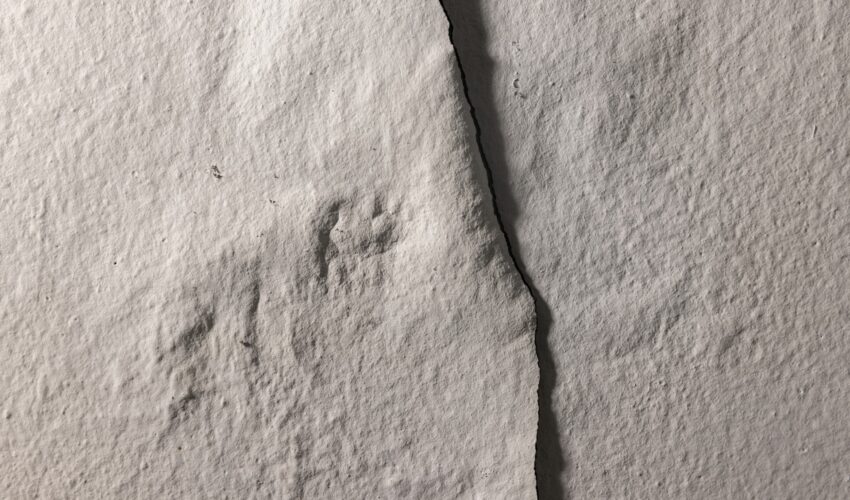Some plumbing issues are easy to spot. Others can go on for weeks without homeowners ever knowing. Slab leaks are some of the most serious of these out-of-sight, under-the-radar issues.
Simply put, a slab leak is when water pipes under your home’s concrete foundation (or slab) begin to leak. This causes shifting and erosion of the soil, and as a result, may compromise the structure of the home above. The longer a slab leak goes undetected and untreated, the more long-term issues and damage you can have, including warped flooring, mold and mildew growth, drywall or ceiling damage, or foundation repairs.
Because slab leaks are difficult to detect and are often slow leaks, the resulting damage can happen before you even know what’s going on. By knowing what to look out for and understanding when to call in the professionals, you can limit the amount of damage and related costs of fixing it.
What Causes Slab Leaks?
From the normal wear and tear of aging pipes to outside factors putting additional stress on your plumbing system, here are some of the most common causes of slab leaks:
- Pipe corrosion. Over time, soil chemistry, minerals in the water moving through the pipes, or even friction between the pipes and the slab can erode or corrode pipe walls and cause leaks in your system.
- Soil shifting. In many cases, changes in the weather or moisture levels in the earth around your home can cause the soil itself to shift and move. This movement can put added stress on both your home’s foundation and plumbing, eventually leading to fractures or separation in pipes under the slab. Slab leaks can worsen foundation shifting, causing greater problems.
- Installation issues. Pipes that are made from poor or outdated materials, not secured or supported correctly, or have tight bends (turns in the pipe) can put extra strain on the system. This can shorten their lifespan and make them more prone to leaks.
- High water pressure. If water moves through the pipes below your foundation too forcefully (typically above 80 PSI), it puts a strain on the entire plumbing system, eventually causing small cracks or pinhole leaks to form.
Signs of a Slab Leak
Because slab leaks happen beneath your home’s foundation, the early signs are often subtle or easily mistaken for other issues. Small leaks often go unnoticed, and by the time visible problems appear, damage may already be underway. Still, there are a few warning signs that can help you catch a potential leak early:
Unexplained increase in your water bill. A sudden spike in water usage can indicate a hidden leak somewhere in your plumbing system, possibly under your foundation. Most municipalities have “smart meters” that detect small leaks and notify homeowners, but older meters do not have this capability and instead leave it to the homeowner to figure it out. If a leak is suspected, check for other more common causes first, like running toilets or dripping faucets, to see if that could be the culprit. Once those are ruled out, it may be time to look below the surface.
Warm or damp spots on the floor. If a spot on your floor feels unusually warm, especially over concrete or tile, it could be a sign of a hot water leak under the slab. Damp or wet spots, on the other hand, can come from any type of leak. Even small leaks can eventually cause discoloration, warped flooring, or mold if left untreated.
Low or inconsistent water pressure. Like any leak, slab leaks can result in less water reaching your faucets or appliances. If pressure drops in a particular room or throughout your home, a hidden leak may be responsible.
Water pooling near your foundation. Though uncommon, unexplained puddles forming around your home, with no recent rain or irrigation, can indicate that water is escaping from beneath the slab.
New cracks in walls, floors, or ceilings. Long-term leaks can erode soil under your foundation, causing it to shift. This may lead to cracks in drywall, flooring, or ceilings, which can worsen over time and threaten the structural integrity of your home. This sign typically shows up in the later stages of a slab leak, and indicates that the leak may have already caused structural damage.
What to Do If You Think You Have a Slab Leak
If you’ve noticed some of the warning signs above, don’t hesitate to call a professional. While these signs can indicate a slab leak, they aren’t specific to it. Any leak, whether under the slab or elsewhere in your plumbing system, can cause damage if left unchecked. The longer a leak goes undetected, the greater the risk of issues like warped flooring, mold growth, or foundation problems. At North East Air Conditioning, Heating & Plumbing, our experienced technicians use specialized tools to locate and repair leaks quickly, helping protect your home’s foundation and plumbing system from further damage.


